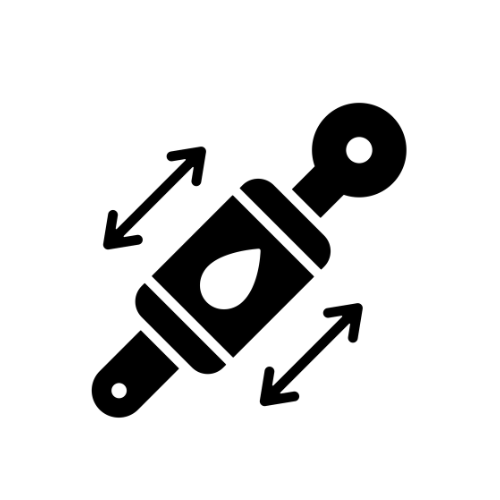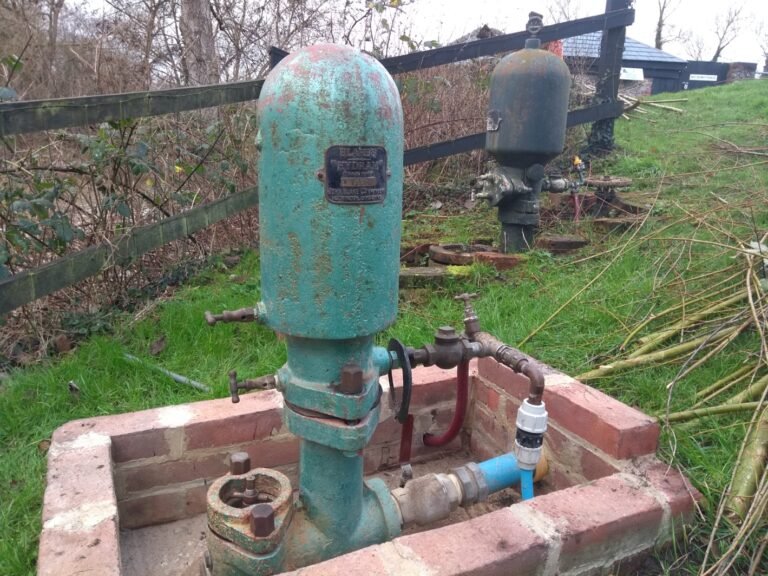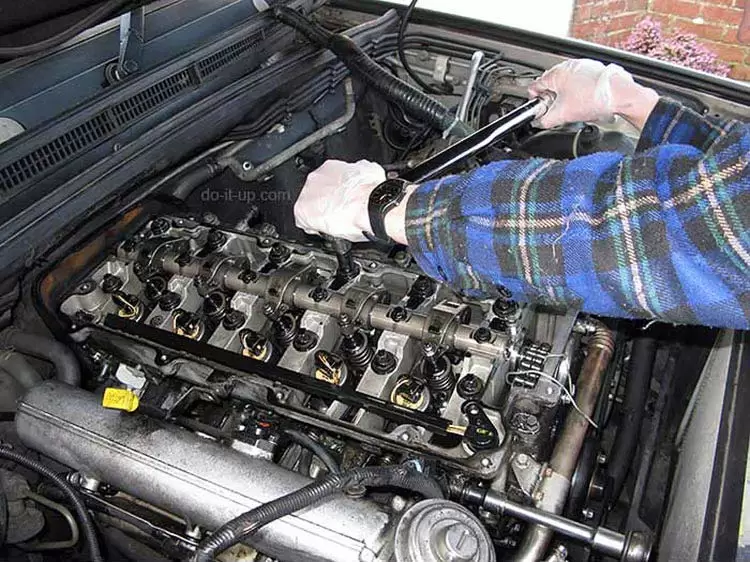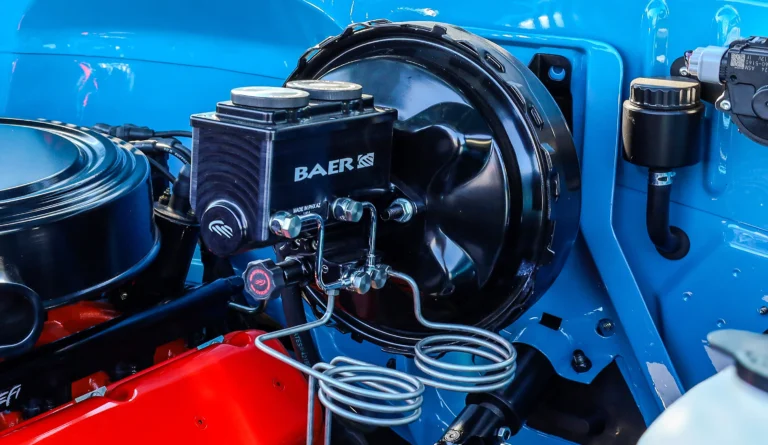Can a 6 Cylinder Pull a Camper? Towing Tips & Tricks
Yes, a 6 cylinder can pull a camper, but the towing capacity depends on the engine size and weight of the camper. Many modern 6 cylinder vehicles are equipped to tow trailers and campers efficiently.
When considering towing capacity, it’s essential to assess the specific vehicle’s capabilities to ensure a safe and smooth towing experience. Understanding the weight limits and compatibility between the 6 cylinder engine and the camper is crucial for a successful journey.
By following manufacturer guidelines and proper towing practices, a 6 cylinder can be a reliable option for pulling a camper. Let’s explore the factors to consider when using a 6 cylinder for towing and how to maximize its performance for your camping adventures.
Towing Capacity And Engine Power
When it comes to towing a camper, the towing capacity and engine power of the vehicle are crucial factors to consider. Understanding the capabilities of different engine types is essential for making an informed decision.
The Role Of Horsepower And Torque
Horsepower and torque are key indicators of an engine’s capability to tow a camper. Horsepower measures the engine’s overall power, while torque determines its ability to move heavy loads. A higher torque allows for easier towing, especially when navigating steep inclines or rough terrain.
Comparing 4-cylinder, 6-cylinder, And 8-cylinder Engines
When comparing engines for towing, the number of cylinders directly impacts performance.
Here’s a breakdown of the towing capabilities of 4-cylinder, 6-cylinder, and 8-cylinder engines:
- 4-Cylinder Engines: These engines are typically found in smaller vehicles and may struggle when towing heavy campers due to limited power and torque.
- 6-Cylinder Engines: Offering a balance of power and efficiency, 6-cylinder engines are suitable for towing mid-sized campers and provide a good compromise between fuel economy and towing capability.
- 8-Cylinder Engines: Known for their robust power, 8-cylinder engines are ideal for towing large campers and trailers, delivering ample horsepower and torque for heavy loads.
Types Of Campers And Their Weights
When it comes to pulling a camper, the type of camper and its weight play a crucial role in determining whether a 6-cylinder vehicle can handle it. Let’s take a closer look at the various types of campers and their respective weights to understand the towing requirements for each.
Pop-up Campers
Pop-up campers, also known as fold-out campers, are lightweight and offer a convenient towing option for 6-cylinder vehicles. With an average weight ranging from 600 to 2,000 pounds, pop-up campers are easily manageable with a 6-cylinder vehicle.
Travel Trailers
Travel trailers come in various sizes, ranging from compact models to larger ones that can weigh between 2,000 and 8,000 pounds. While some 6-cylinder vehicles can handle smaller travel trailers, it’s essential to check the towing capacity and ensure it aligns with the weight of the trailer.
Fifth-wheel Campers
Fifth-wheel campers are typically heavier, with weights ranging from 7,000 to 20,000 pounds. Due to their substantial weight, a 6-cylinder vehicle may not be suitable for towing larger fifth-wheel campers. It’s crucial to consider the towing capacity and compatibility before attempting to tow a fifth-wheel camper with a 6-cylinder vehicle.
The 6-cylinder Advantage
Experience the 6-cylinder advantage – powering campers effortlessly with superior towing capacity. Discover the reliability and strength of a 6-cylinder engine for your camper adventures.
When it comes to towing a camper, one of the most important considerations is the type of engine in your vehicle. A 6-cylinder engine can provide several advantages when it comes to pulling a camper. Let’s take a closer look at the 6-cylinder advantage and why it might be the right choice for your next camping trip.
Fuel Efficiency Considerations
One of the main advantages of a 6-cylinder engine is its fuel efficiency. While a V8 engine might have more power, it will also use more fuel. A 6-cylinder engine can provide enough power to pull a camper while still being fuel-efficient. This means you can save money on gas and have a more eco-friendly camping trip.
Handling And Stability On The Road
Another advantage of a 6-cylinder engine is its handling and stability on the road. Because it is lighter than a V8 engine, a 6-cylinder engine can provide better handling and stability when towing a camper. This can make your trip safer and more enjoyable, especially if you are traveling on winding or hilly roads.
In addition to the engine type, there are other factors to consider when towing a camper, such as the weight of the camper and the towing capacity of your vehicle. However, choosing a 6-cylinder engine can provide several advantages when it comes to fuel efficiency, handling, and stability on the road.
So, if you are planning your next camping trip, consider a 6-cylinder engine for your towing needs.
Matching The Camper To Your Vehicle
When it comes to towing a camper, one of the key factors to consider is whether your vehicle has the capability to handle the load. Understanding the towing capacity of your vehicle and the importance of having a proper tow package are crucial in ensuring a safe and successful towing experience.
Understanding Towing Capacity
Towing capacity refers to the maximum weight that a vehicle can safely tow. It is essential to know the towing capacity of your vehicle before selecting a camper. Exceeding the towing capacity can put undue stress on your vehicle’s engine, transmission, and suspension, leading to potential safety hazards and costly damages.
Here’s a simple breakdown:
| Vehicle | Towing Capacity |
|---|---|
| SUV | Up to 5,000 lbs |
| Truck | Varies based on model and configuration |
| Van | Up to 7,000 lbs |
Importance Of The Tow Package
Having a proper tow package is vital for a smooth and safe towing experience. A tow package typically includes additional features and upgrades that enhance the vehicle’s towing capabilities. These may include:
- A heavy-duty radiator and transmission cooler to prevent overheating
- Upgraded suspension and brakes for improved stability and control
- Integrated trailer wiring harness for seamless electrical connections
- Trailer sway control to minimize swaying motions
Investing in a vehicle with a factory-installed tow package or adding an aftermarket tow package can greatly enhance your vehicle’s ability to handle a camper’s weight and provide a safer towing experience.
Remember, matching the camper to your vehicle is not just about the engine power but also considering factors like towing capacity and having the right tow package. By understanding these aspects and making informed decisions, you can ensure a successful and enjoyable camping trip with your camper and vehicle combination.
Pre-towing Checklist
Ensure your 6-cylinder vehicle is camper-ready by following this pre-towing checklist. Before hitting the road, confirm your vehicle’s towing capacity and make necessary adjustments for a safe and smooth towing experience.
Inspecting Your Vehicle
Before you hit the road with your camper, it’s crucial to inspect your vehicle to ensure it’s capable of pulling the load. Follow this pre-towing checklist to ensure a safe and smooth journey.
Tires
Check the condition and inflation of your vehicle’s tires. Ensure they are properly inflated and have sufficient tread depth for towing. Bald or underinflated tires can lead to poor handling and increased risk of accidents.
Brakes
Inspect the brakes of your vehicle to ensure they are in good working condition. Brake pads should be thick enough, and the brake system should be free from any leaks or unusual noises. Properly functioning brakes are essential for towing safety.
Lights and Signals
Check all lights and signals on your vehicle, including headlights, taillights, brake lights, and turn signals. Ensure they are all functioning properly to ensure visibility on the road and communicate your intentions to other drivers.
Suspension and Steering
Inspect the suspension and steering components of your vehicle. Look for any signs of wear or damage that could affect your vehicle’s stability and control while towing. Make sure the steering is responsive and the suspension is in good condition.
Preparing The Camper For Towing
In addition to inspecting your vehicle, it’s important to prepare your camper for towing. Follow these steps to ensure your camper is ready for the journey ahead.
Weight Distribution
Proper weight distribution is crucial for safe towing. Make sure the weight inside the camper is evenly distributed, with heavier items placed low and towards the front. This helps prevent trailer sway and ensures better handling.
Hitch and Coupler
Check the hitch and coupler for any signs of wear or damage. Ensure they are properly secured and that the hitch ball matches the coupler size. Lubricate the hitch mechanism to ensure smooth movement during towing.
Trailer Brakes and Lights
Test the trailer brakes and lights to ensure they are working correctly. This includes the brake lights, turn signals, and running lights. Faulty brakes or lights can pose a significant safety risk while towing.
Tire Pressure and Wheel Bearings
Inspect the tires on your camper and ensure they are properly inflated. Additionally, check the wheel bearings for any signs of wear or damage. Grease the wheel bearings to prevent friction and ensure smooth rotation.
Remember, a thorough pre-towing checklist is essential for a safe and enjoyable towing experience. By inspecting your vehicle and preparing your camper properly, you can minimize the risk of accidents and ensure a smooth journey to your destination.
Safe Towing Practices
Mastering The Art Of Driving With A Camper
When towing a camper with a 6-cylinder vehicle, it’s crucial to master the art of driving with a camper to ensure safe and smooth travels. Proper weight distribution and braking distance are essential for maintaining control and stability on the road.
Navigating Hills And Sharp Turns
Driving a 6-cylinder vehicle while towing a camper requires careful navigation, especially when encountering hills and sharp turns. Understanding the impact of inclines and declines on your vehicle’s performance is vital for safe towing. It’s important to maintain a steady speed and use lower gears when ascending or descending steep grades to prevent strain on the engine and brakes.
Enhancing Your Vehicle For Better Towing
Yes, a 6-cylinder vehicle can pull a camper, but enhancing it for better towing is crucial. Upgrading the suspension, adding a transmission cooler, and using a weight distribution hitch can optimize the vehicle’s towing capacity and ensure a smoother towing experience.
Aftermarket Upgrades For Towing
Enhance your vehicle for better towing by considering aftermarket upgrades.
Upgrading your 6-cylinder vehicle can improve its towing capacity.
Bolt-on towing packages are available for increased towing power.
Consider installing a heavy-duty hitch for secure camper towing.
Regular Maintenance For Towing Readiness
Maintain your vehicle regularly to ensure it’s always ready for towing.
Check tire pressure and tread depth for safe towing performance.
Inspect brakes and lights to ensure they’re in optimal working condition.
Change oil and filters at recommended intervals for smooth towing.
Legal Considerations And Compliance
When towing a camper with a 6-cylinder vehicle, legal considerations and compliance are crucial. Understanding weight regulations and towing laws across different states is essential.
Understanding Weight Regulations
Weight regulations dictate the maximum weight a vehicle can tow. Exceeding these limits can result in fines or penalties.
Towing Laws Across Different States
Towing laws vary by state, including speed limits, trailer brakes requirements, and license requirements.
Conclusion
After analyzing the factors that determine if a 6 cylinder can pull a camper, it is safe to say that it depends on various factors such as the weight and size of the trailer, the engine’s power, and the towing capacity of the vehicle.
However, with proper planning and consideration, a 6 cylinder can be a capable towing vehicle for smaller and lighter campers. It is essential to stay within the vehicle’s towing limit to avoid any mishaps. Overall, it is possible to tow a camper with a 6 cylinder, but it requires careful planning and consideration.

Our mission is to be your trusted resource for everything related to car cylinders.


